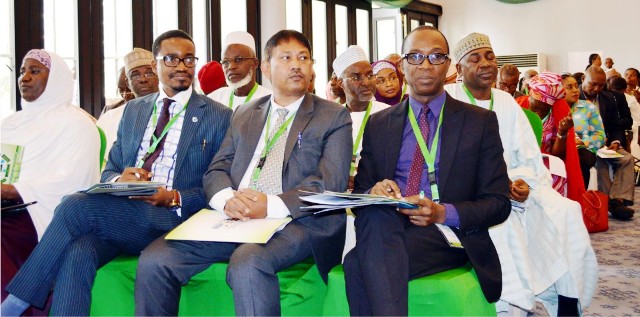Business
Expert Harps On Cloud Technology Adoption

A seasoned IT consultant, Afolabi Sunday, has urged businesses to embrace cloud technology for enhanced efficiency and innovation.
Disclosing this to the press recently, Sunday underscored the importance of embracing cloud technology in the IT industry.
According to him, “Cloud technology offers flexibility, scalability and cost-effectiveness for businesses of all sizes. It enables organizations to streamline operations, enhance collaboration, and drive innovation”.
He asserted the impact of cloud technology on IT infrastructure, emphasizing its role in enabling digital transformation, accelerating time-to-market, and enhancing agility.
“Cloud adoption is no longer a choice but a necessity for businesses seeking to remain competitive in today’s digital era. By migrating to the cloud, organisations can unlock new opportunities for growth, reduce IT overhead costs, and improve overall efficiency”, he said.
Sunday addressed common challenges and misconceptions surrounding cloud adoption, including concerns about data security, compliance, and transition management.
The expert stressed the importance of comprehensive planning, robust security measures, and ongoing monitoring to address these challenges effectively.
“As with any technology adoption, careful planning and strategic execution are essential for successful implementation. By partnering with experienced IT consultants and leveraging best practices, organisations can mitigate risks and maximize the benefits of cloud technology”, he noted.
He called on businesses to prioritise cloud adoption as a strategic imperative for driving innovation, and competitive advantage in the digital age.
“Embracing cloud technology is key to staying ahead of the curve and unlocking new opportunities for business growth. By embracing cloud technology, organisations can future-proof their operations and position themselves for long-term success”, he added.
Sunday’s expertise and advocacy for cloud technology adoption underscore his leadership in driving digital transformation and innovation within the IT industry, solidifying his reputation as a trusted advisor and thought leader in the field.
Business
Fidelity Bank To Empower Women With Sustainable Entrepreneurship Skills, HAP2.0
Business
President Tinubu Approves Extension Ban On Raw Shea Nut Export
Business
Crisis Response: EU-project Delivers New Vet. Clinic To Katsina Govt.
-
Maritime5 days ago
Nigeria To Pilot Regional Fishing Vessels Register In Gulf Of Guinea —Oyetola
-

 Sports5 days ago
Sports5 days agoGombe-Gara Rejects Chelle $130,000 monthly salary
-
Maritime5 days ago
Customs Declares War Against Narcotics Baron At Idiroko Border
-

 Sports5 days ago
Sports5 days agoTEAM RIVERS SET TO WIN 4×400 ” MORROW” …Wins Triple jump Silver
-

 Sports5 days ago
Sports5 days agoNPFL Drops To 91st In Global League Rankings
-
Maritime5 days ago
NIMASA,NAF Boost Unmanned Aerial Surveillance For Maritime Security
-

 Sports5 days ago
Sports5 days agoNIGER DELTA GAMES PANACEA TO YOUTH DEV”
-

 Sports5 days ago
Sports5 days agoNPFL Impose Fines On Kwara United Over Fans Misconduct

